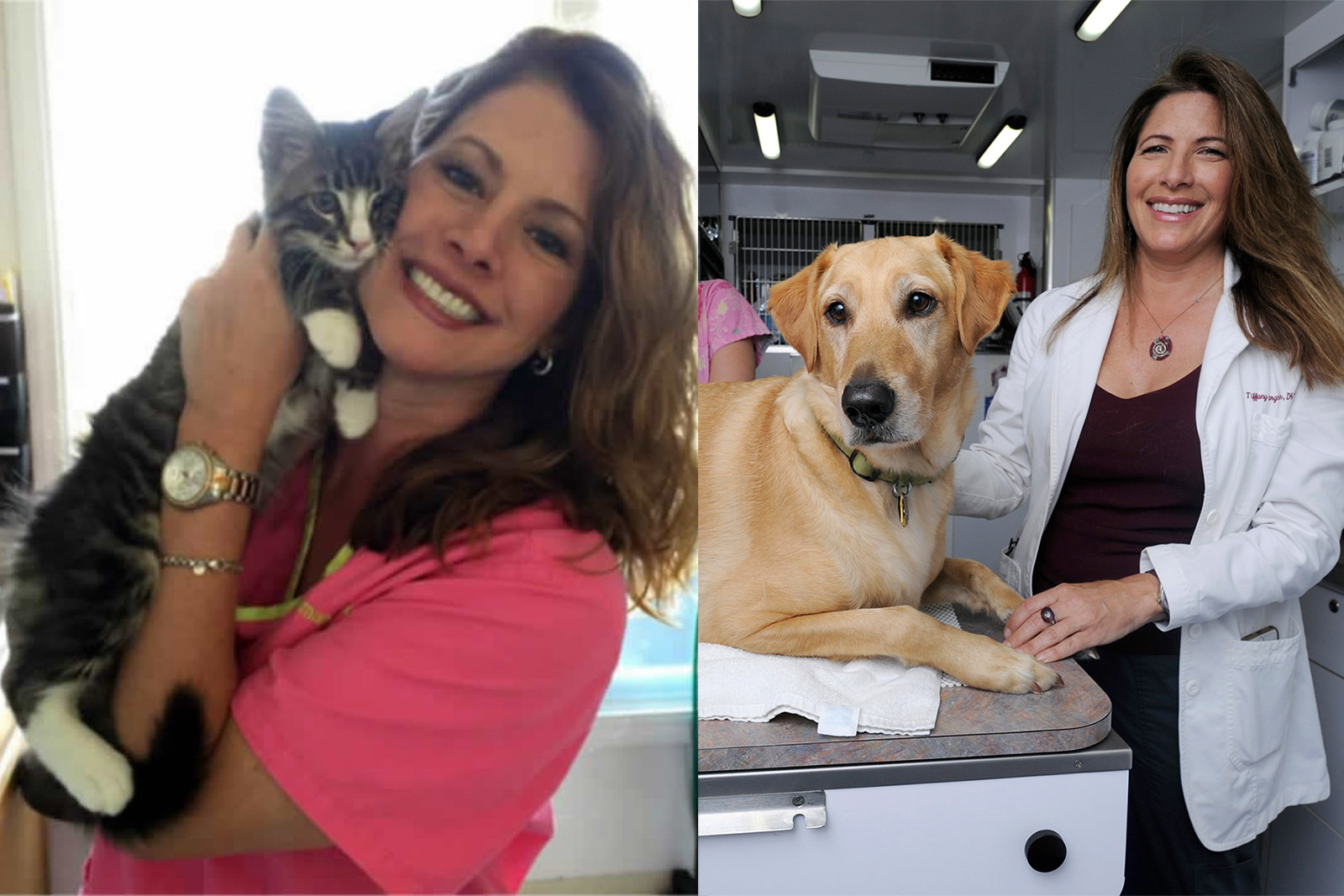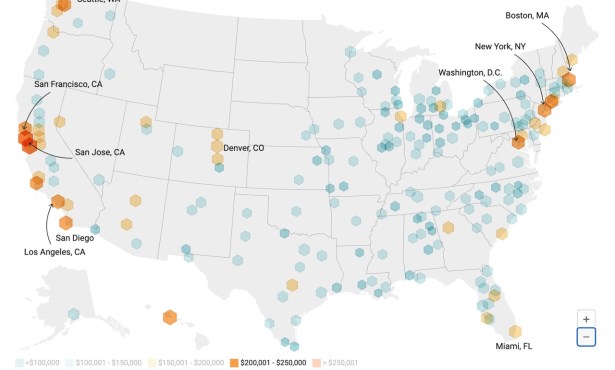Veterinarian Suicides Reflect Quiet Professional Crisis
Santa Barbara Animal Doctors Mourn Colleagues Tiffany Margolin and Amanda Lumsden

Even among Santa Barbara’s exceptionally talented pool of veterinarians, doctors Tiffany Margolin and Amanda Lumsden stood out. Both ran their own four-wheeled practices — From the Heart Mobile Vet and Cat Calls Mobile Veterinary Service, respectively — dispensing at-home care to sick pets. They did general medicine and performed surgeries, and each provided a specialty: Margolin was trained in animal acupuncture and herbal treatments, while Lumsden offered low-cost spays and neuters. Often, frequently more than once a day, they were called to euthanize terminally ill cats and dogs at the sides of their grieving owners. Online message boards are filled with gratitude for their difficult work.
Within months of each other, both women committed suicide, Margolin late last year and Lumsden in early February. Their deaths shocked colleagues and clients, who said neither had shown obvious signs of distress. But the losses are reflective of a quiet crisis within their profession. “It’s a problem in our field,” said Dr. Kristi Gibbs at the Adobe Pet Hospital on upper State Street. “Both women were probably the kindest people you’d ever meet, and the loss is especially devastating because we’re such a small community, but this is happening everywhere. That’s the kicker.”
Multiple studies in recent years have revealed disproportionately elevated rates of depression, anxiety, and suicide among veterinarians in the United States. Their suicide rate is four times higher than the general population — higher than any other white-collar field. A Centers for Disease Control and Prevention survey of 10,000 practicing veterinarians showed they displayed signs of serious mental illness and feelings of hopelessness and worthlessness two to three times as often as the rest of the population. Similar statistics have been reported in Great Britain and Australia.
“The stressors are very real,” explained Dr. Lex McKenna, who operates Santa Barbara’s Coastal Mobile Veterinary. “We’re in a very emotional industry for ourselves and our clients. We’re dealing with people’s loved ones.” While they’re empathetic animal lovers, veterinarians also tend to possess Type A personalities, or be perfectionists, said McKenna. They’re driven and determined and want to fix every ailment just right. So when treatment eludes them, it’s extremely difficult, said McKenna, especially when they lose patient after patient, a hazard unique to their particular medical field.
It’s not unusual for veterinarians to work 12- to 14-hour days, McKenna went on, mainly to help as many animals as they can, but also to pay the bills. Like their human-doctor counterparts, vets graduate from medical school with heavy student debt, but throughout their careers even the most accomplished will only earn about half of what people physicians make. Add that student debt to a mortgage, living expenses, and van payments, and the financial burden can be overwhelming, McKenna said.
Client demands can be trying, too. While most pet owners understand the limitations of veterinary medicine, many exert unfair pressure. “People expect miracle workers,” said McKenna. “Society has become so accustomed to immediate service and instant gratification, but we can’t always give that.” Vets are also pushed to perform their services at no cost. “Sometimes people get mad if they can’t pay,” said McKenna. They say, ‘If you loved animals, you’d do it for free.’” McKenna has seen her fair share of nasty online comments and worries about the effects of such cyberbullying. In October 2016, Margolin spoke at a panel organized by the Santa Barbara Association for Women in Communications called How to Handle Online Criticism.
Veterinarians are trained to consider euthanasia as a medical option if all other treatments fail. “Some of us have sought that as an option, and it’s tragic,” said McKenna, who spoke of the great respect she maintains for Margolin and Lumsden, both personally and professionally.
In response to their deaths, the Santa Barbara Ventura Veterinary Medical Association organized an emergency meeting and called in Dr. Kathleen Ayl, a Valencia-based psychologist and grief support specialist who’s written a book on the subject, When Helping Hurts: Compassion Fatigue in the Veterinary Profession. Ayl lectures around the country and has banged the drum on the issue louder than anyone else. “People are starting to talk about it, and that’s good,” she said. “But then something like this happens, and you go right back to feeling you’ve done nothing at all.”
Ayl said it’s critical for would-be veterinarians to learn about “compassion fatigue” before beginning their careers and to understand ways to prevent burnout once they get their licenses. “It’s just a very unique, incredibly difficult field,” she said. “It’s not something kids think about when they grow up wanting to care for animals.” Just as important, Ayl went on, is to eliminate the stigma around reaching out for help, something especially difficult for the perfectionist personality types that dominate the profession. “We need to change the idea that reaching out means failing,” she said.
Ayl didn’t know Margolin and Lumsden but has seen their tragic stories play out many times before. “How long did they suffer this much?” she asked of the women. “It makes me want to cry. … It’s great and it’s beautiful that veterinarians are such helpers, but my god, we need to let them know we’re here for them.”
If you or someone you know is thinking about hurting themselves, call 9-1-1 or the 24/7 National Suicide Prevention Lifeline at 1 (800) 273-8255. A list of regional resources can be found at countyofsb.org/admhs. To learn about Vets4Vets, a confidential support group for veterinarians, visit vinfoundation.org.


